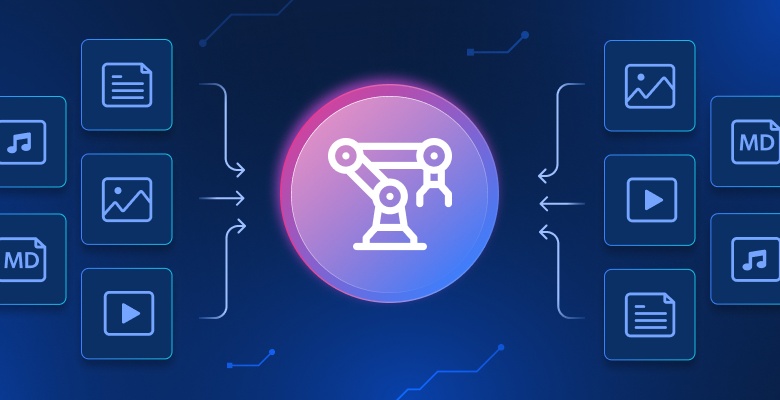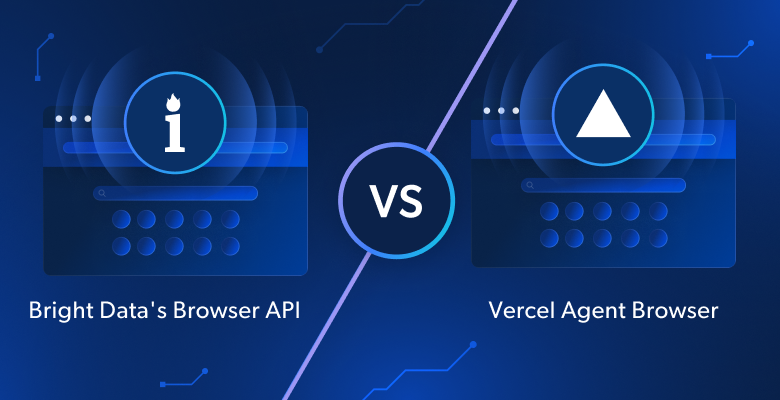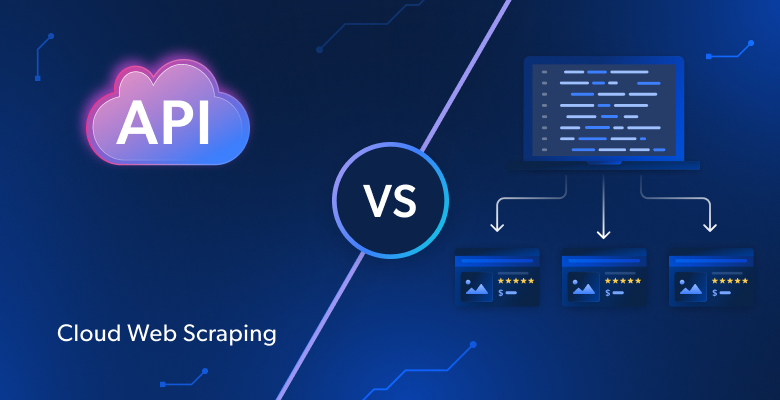In this guide, you will learn:
- Whether it is possible to bypass CAPTCHAs in C#
- The top 5 methods to do so
- The best C# CAPTCHA-solving method
Let’s dive in!
Is It Possible to Bypass CAPTCHAs in C#?
A CAPTCHA, short for “Completely Automated Public Turing test to tell Computers and Humans Apart,” is a challenge devised to be easy for humans to solve but difficult for bots. Its primary purpose is to help a web page distinguish between real users and automated scripts.
In most cases, CAPTCHAs prompt you to complete a simple task, such as identifying objects in images, solving puzzles, or entering distorted text.

Given that premise, you might assume that bypassing a CAPTCHA in C# using an automated script is impossible. After all, if a CAPTCHA works as intended, it should prevent bots from passing the challenge. However, that is not always entirely true…
The battle between CAPTCHA systems and automated scripts is an ongoing cat-and-mouse game, where both sides keep evolving to outsmart each other. As a result, there are indeed methods to automate CAPTCHA solving in C# or any other programming language.
Most of these solutions rely on third-party services or tools built for CAPTCHA bypassing, but some open-source options are also available. Knowing these methods is important for carrying out effective web scraping in C#.
CAPTCHA Bypass Methods in C
Time to explore the most common and effective ways to bypass CAPTCHAs in C#:
- Tweak your browser automation tool for stealth
- Pass the CAPTCHA to AI
- Integrate with a premium CAPTCHA solver provider
- Use a scraping browser
- Use a web unlocking API
For each method, we will cover how it works, what it involves, and its pros and cons.
Method #1: Tweak Your Browser Automation Tool for Stealth
Most CAPTCHA solvers do not actually focus on solving CAPTCHAs but rather on avoiding them. After all, as regular human users, we tend to encounter far fewer CAPTCHAs than when simulating user interactions with a browser automation tool like Selenium C#, Playwright C#, or PuppeteerSharp. Ever wondered why?
That occurs because browser automation tools need to set up browsers in a special way to control them. These settings make the browser slightly different from those used by regular users, opening the door to bot detection. By configuring the automated browser correctly, you can minimize CAPTCHA appearances—especially from WAF systems like Cloudflare.
In detail, some libraries aim to patch browsers in automation tools to limit detection by making them appear more genuine. We are talking about technologies like Playwright Stealth, Puppeteer Stealth, and SeleniumBase. The problem is that those solutions are mainly available in JavaScript and Python—not C#.
In C#, there is no widely adopted tool to enforce “stealth mode” in automated browsers. Instead, you have to patch and configure the browser manually. For example, below is how you can do that in Selenium C#:
var options = new ChromeOptions();
options.AddArgument("--disable-blink-features=AutomationControlled");
options.AddExcludedArgument("enable-automation");
// other options for "stealth mode"...
var driver = new ChromeDriver(options);
driver.Navigate().GoToUrl("https://example.com");
// automation logic...Or, equivalently, in Playwright C#:
var playwright = await Playwright.CreateAsync();
var browser = await playwright.Chromium.LaunchAsync(new BrowserTypeLaunchOptions
{
Headless = false,
Args = new[] {
"--disable-blink-features=AutomationControlled"
// other options for "stealth mode"...
}
});
var context = await browser.NewContextAsync();
var page = await context.NewPageAsync();
await page.GotoAsync("https://example.com");
// automation logic...👍 Pros:
- Free and open-source
👎 Cons:
- Requires knowledge of the arguments to apply for stealth mode
- Needs frequent maintenance and may still lead to flaky results
- Focuses on bypassing CAPTCHAs rather than solving them
Method #2: Pass the CAPTCHA to AI
AI has advanced significantly, and studies have shown that it can successfully solve certain CAPTCHAs. Take the example below:

An LLM model should be able to solve that challenge without any issues:

To implement C# CAPTCHA solving with AI, follow these steps:
- Capture a screenshot of the CAPTCHA using Selenium or Playwright in C#
- Send the screenshot to an AI provider with a prompt to solve the challenge
- Automate the response by using the AI’s result in your C# browser automation tool to apply the CAPTCHA solution
While this approach seems effective, it primarily works for text-based CAPTCHAs—which are now largely obsolete. To protect against AI, most providers have shifted to sophisticated CAPTCHAs. Here is why AI CAPTCHA fails are now so popular.
👍 Pros:
- Easy integration with any browser automation tool
👎 Cons:
- Requires premium access to an AI provider
- Works mainly on simple text-based CAPTCHAs
- May produce inconsistent results
Method #3: Integrate With a Premium CAPTCHA Solver Provider
A CAPTCHA solver is a service specifically built to pass CAPTCHAs from popular providers. In most cases, these solutions operate through an API-based interface, which typically involves these steps:
- Extract the CAPTCHA image or ID from the webpage
- Submit that data/info to the CAPTCHA solver service via API
- Receive the response with the code/instructions to solve the CAPTCHA
- Execute the received solution
Usually, you are charged depending on the type of CAPTCHA to be solved. For example, reCAPTCHA may cost more than a simple text-based CAPTCHA, which—as shown earlier—can often be automated using AI.
Behind the scenes, CAPTCHA solvers rely on automation technologies, AI, or even human work to effectively solve CAPTCHAs. To find the right service for you, read our guide on the best CAPTCHA solvers.
👍 Pros:
- Supports CAPTCHA solving for most providers
- Can be integrated into any programming language via API
👎 Cons:
- Focus mainly on CAPTCHA solving, bot bypass
- Works only for CAPTCHAs, not other anti-bot protections
- Human-based solving might take a lot of time
Method #4: Use a Scraping Browser
A scraping browser is a specialized browser optimized, tweaked, and fine-tuned for web scraping. It comes with several features to circumvent anti-scraping measures and reduce bot automation.
Common features offered by a scraping browser include:
- IP rotation through genuine residential IPs
- Hosted in the cloud to guarantee unlimited scalability
- Pre-configured to bypass anti-bot measures
- Simulation of real user behavior to avoid detection
- Header and cookie customization
- Built-in CAPTCHA solving
In other words, these solutions function as cloud-based browsers that can be connected to any browser automation tool (e.g., Selenium, Playwright, Puppeteer) without requiring additional configuration.
In particular, high-end scraping browsers are equipped with built-in CAPTCHA-solving capabilities. So, not only do they help minimize CAPTCHA occurrences, but they also solve them for you automatically.
The main advantage of a scraping browser is that no special logic is needed. You simply connect to it using an automation tool and instruct it to visit your target page. If a CAPTCHA appears, it will be solved for you.
Discover what our Scraping Browser has to offer!
👍 Pros:
- Bypasses anti-bot systems and solves CAPTCHAs without extra logic
- Natural integration with Puppeteer, Playwright, Selenium, and any other automation tool
- Cloud-based for unlimited scalability
👎 Cons:
- Requires a browser automation tool
Method #5: Use a Web Unlocking API
The final method to bypass CAPTCHAs in C# is by using a web unlocking API. Such a solution exposes dedicated scraping endpoints that accept the URL of the target page as input and return the unlocked, CAPTCHA-free HTML document as output.
Bypassing CAPTCHAs with a web unlocking API only follows a single step. Just send a request to the API with the URL of your target page, and the API will handle all CAPTCHA challenges for you.
Some advanced web unlocking APIs go even further by automatically extracting structured data from the page or returning additional useful metadata. In that scenario, they are also known as web scraper APIs.
These APIs function similarly to scraping browsers, combining multiple anti-bot bypass techniques. Then, if CAPTCHA solving is necessary, they automate the process in the background. Once you get the unlocked HTML, you can:
- Parse it using C# HTML parsing libraries, or
- Render it in a browser automation tool
This is it—no extra configuration or complex setup required!
👍 Pros:
- Simple API integration
- Works against any site
- No need for browser automation
👎 Cons:
- Requires a premium web unlocking plan
Best C# CAPTCHA Bypass Methods
Compare the methods for bypassing A CAPTCHA In C# using the summary table below:
| Integration | Requires browser automation | CAPTCHA bypass | CAPTCHA solving | Open source | |
|---|---|---|---|---|---|
| Stealth mode | Custom configs in your code | Yes | ✔️ | ❌ | ✔️ |
| AI | API | Depends | ❌ | ✔️ (simple CAPTCHAs only) | Depends |
| CAPTCHA solver | API | Depends | ❌ | ✔️ | ❌ |
| Scraping browser | Cloud-based | Yes | ✔️ | ✔️ | ❌ |
| Web unlocking API | API | No | ✔️ | ✔️ | ❌ |
For similar content but on a different programming language, refer to our guide on how to bypass CAPTCHAs in Python.
Conclusion
In this blog post, you discovered some of the most effective methods for bypassing and solving CAPTCHAs in C#. The top three approaches include using a dedicated CAPTCHA solver, a scraping browser, or a web unlocking API.
Since all these methods require a third-party premium provider, which one should you choose? Save time and effort in testing all online options by going straight to the best web scraping tool on the market—Bright Data.
Bright Data has you covered, offering all the three C# CAPTCHA-solving tools:
- CAPTCHA Solver: A fast, automated CAPTCHA-solving tool that supports reCAPTCHA, hCaptcha, px_captcha, SimpleCaptcha, GeeTest CAPTCHA, and many others.
- Scraping Browser: A fully hosted browser solution for web automation and dynamic scraping. It works with Puppeteer, Selenium, and Playwright scripts—no infrastructure required. It offers built-in CAPTCHA solving and automated proxy management.
- Web Unlocker API: An endpoint to bypass even the most advanced bot protections with ease. It simulates real user behavior, automates proxy management, and solves CAPTCHAs for you.
Create an account for free and try our powerful scraping solutions!






